Aniversary celebration
Anna Tumarkin – the University of Bern celebrates its pioneer
Many prominent female figures and a packed auditorium: on the occasion of Anna Tumarkin's 150th birthday, the University of Bern honored its first fully-fledged female professor – and thus the first female professor in history.
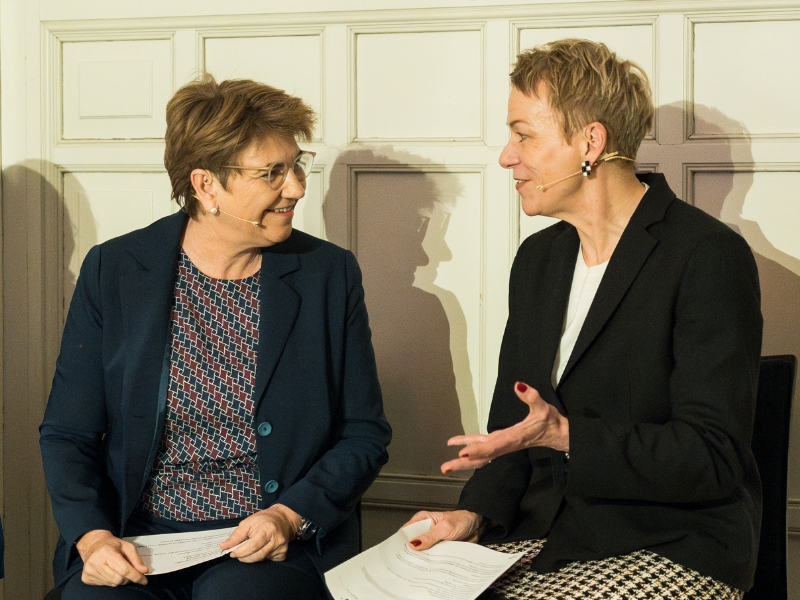
The University of Bern celebrated Anna Tumarkin (1875-1951), a philosopher of Russian-Jewish origin, with a large public event. Tumarkin received her doctorate and habilitation in Bern and was appointed as an associate professor in 1909. She was the first woman to be appointed to a professorship through the usual academic channels, with all the rights that this entails – she was allowed to examine doctoral and habilitation students and sit on the senate. Tumarkin would have turned 150 on February 16, 2025.
After the opening of the anniversary celebration by Rector Virginia Richter, philosopher, journalist and author Barbara Bleisch hosted the event.

The historian Franziska Rogger recently published the biography “Anna Tumarkin – The Fateful Life of the First Female Professor”. In an interview with Barbara Bleisch, Rogger shared insights into the life story of the philosopher.
Tumarkin left her Russian homeland at the age of 17 and came to Bern in 1892. Naturalized there almost 30 years later, she campaigned for women's suffrage in Switzerland. As she learned after the end of the Second World War, she lost her entire family in Russian pogroms and Nazi camps.
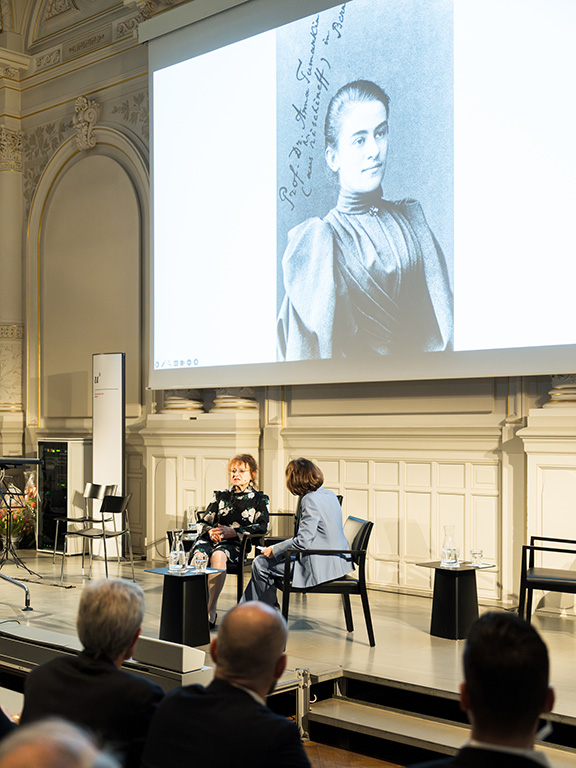
Nina Tumarkin is a history professor at Wellesley College (USA) and great-grandniece of Anna Tumarkin. She came from the United States to honor her ancestor and said in her speech: “We are celebrating not only the brilliant mind of a philosopher, but also her big heart.”
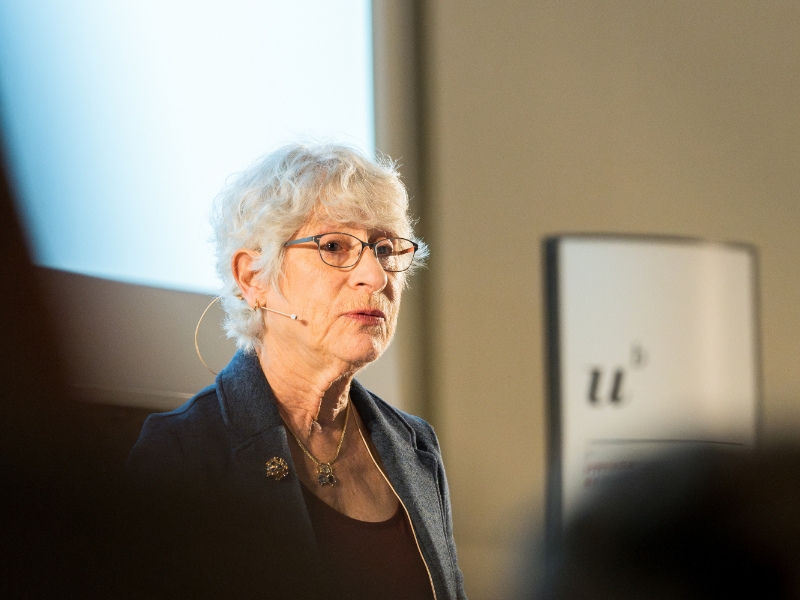
Federal Councillor Viola Amherd spoke about the role of female pioneers: “When a woman breaks through a barrier, she may trigger change. However, change does not come about through individual achievement, but depends on a social rethink.”
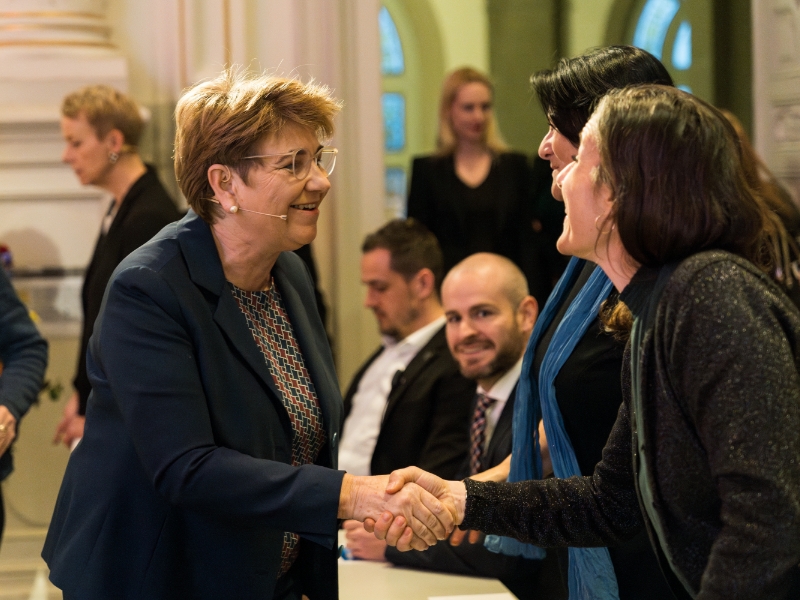
In the concluding panel discussion, Federal Councillor Viola Amherd, Rector Virginia Richter, Lena Lisa Wüstendörfer, principal conductor of the Swiss Orchestra, and Belinda Walther Weger, Head of Public Affairs and Sustainability at “Die Mobiliar”, discussed the topic of “Women in leadership positions”.
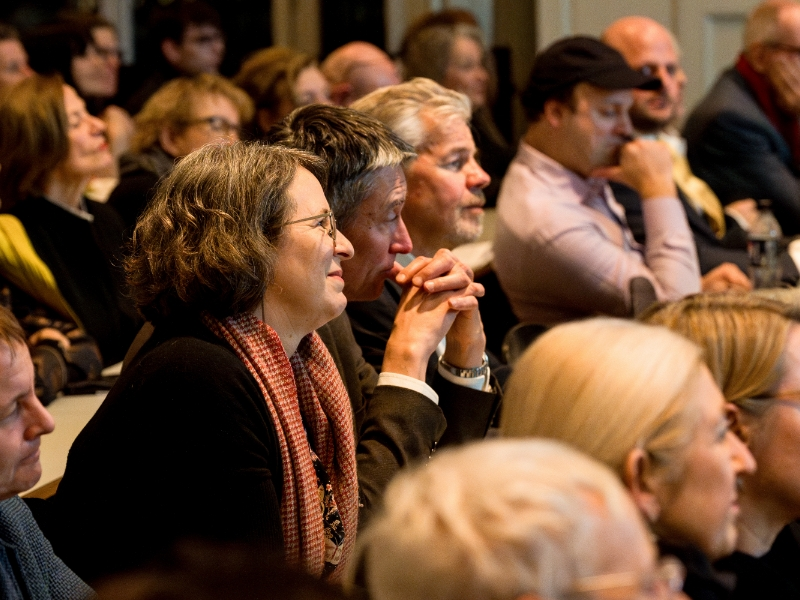
Visitors were also able to view an exhibition inaugurated on this occasion about the history of women's studies at the University of Bern at Tumarkinweg. In addition, video portraits of selected female Bernese researchers were presented in the entrance hall.
Exhibition: “Pioneers from Eastern Europe”
The history of women at the University of Bern cannot be told without mentioning the first pioneers from Eastern Europe. Twenty years before Anna Tumarkin's arrival in Bern, 1873 young women from the Russian Empire dared to take the step to Bern University. They were inquisitive and courageous, but they also caused controversy and caused a stir. An exhibition designed for the anniversary traces the sometimes rocky path of the first female students. It was conceived and developed by Julia Richers and Carmen Scheide, historians at the University of Bern, together with their students of history and Eastern European studies.
In addition to Anna Tumarkin's extraordinary biography, the exhibition also focuses on the beginning of women's studies in Bern, the pioneering role of women from Eastern Europe, and the hurdles that women in science had to overcome. This chapter of Bern University's history highlights several historical dynamics: on the one hand, education as a history of emancipation and, on the other, migration and internationalization as a potential for innovation at a cosmopolitan university.
More informationen (in German): https://tumarkin.unibe.ch/ausstellung/index_ger.html